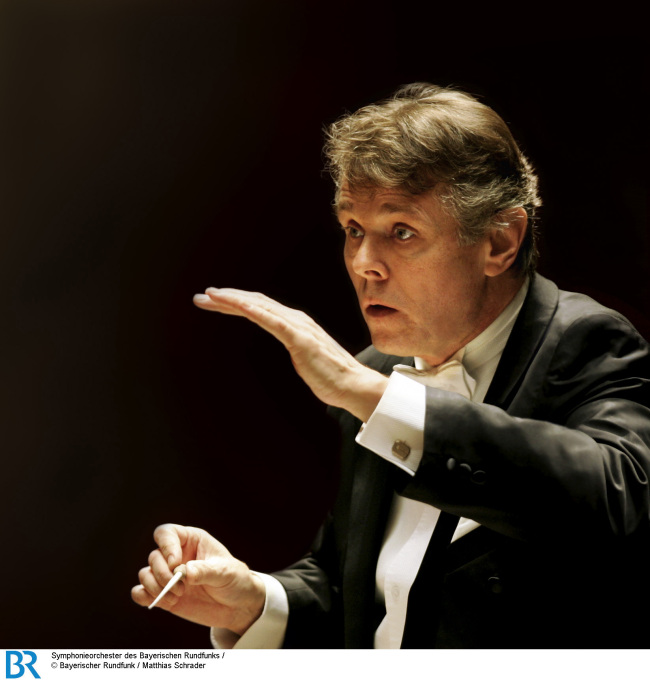For some classical music lovers, the news earlier this year that Mariss Jansons would be leaving the Royal Concertgebouw Orchestra in Amsterdam was saddening.
Many took it as a sign that the beloved Latvian conductor, who has had health problems for years, may finally be slowing down.
Considered by many to be the greatest living conductor, he has been with the prominent Dutch orchestra, which frequently tops orchestra rankings worldwide, since 2004.
To fans who might be worried about his health, the maestro wants to show, with the same vigor and musicality, what he calls “a cosmic level” of music in two Seoul appearances next week.
 |
Mariss Jansons leads the Bavarian Radio Symphony Orchestra. (Vincero) |
In two concerts at Seoul Arts Center on Nov. 18 and 19, he will conduct the Munich-based Bavarian Radio Symphony Orchestra, which he has been leading as music director since 2003.
The German ensemble is also among the world’s greatest, placing sixth in a Grammophon ranking.
“BRSO consists of excellent musicians. It is musically and technically one of the best orchestras of the world,” Jansons said of the group through an email.
 |
Mariss Jansons. (Matthias Schrader) |
He praised members of the ensemble for their “very serious work and attitude towards music.”
Jansons has been leading both the German and Dutch ensembles as chief conductor. Although he will end his tenure with the Concertgebouw after the 2015 season, he says he will continue conducting the German ensemble until 2018.
Born into a musical family (his father was the respected conductor Arvid Jansons and his mother was a mezzo-soprano), Jansons attended rehearsals of his father from the age of 3. He studied violin first, but was later drawn to conducting. He learned under the internationally renowned conductors Hans Swarowsky and Herbert von Karajan.
Jansons was appointed assistant to conductor Yevgeny Mravinsky of the Leningrad Philharmonic Orchestra in 1973. From 1979 to 2000 he was chief conductor at the Oslo Philharmonic Orchestra.
He became chief conductor at the Bavarian Radio in 2003 and the Concertgebouw in 2004.
“I always loved music, ever since I was 3 years old,” he said.
In 1996, he nearly died onstage from a heart attack while conducting Puccini’s “La Boheme” in Oslo. Surgeons implanted a defibrillator in his chest to give his heart an electric jolt if it fails.
Despite a heart problem, his passion and committment to music didn’t change.
“My attitude has never changed,” he said. “I do have vacation days, but I end up studying scores.”
The program for the Nov. 18 concert consists of Dvorak’s Symphony No. 9 “From the New World” and Mussorgsky’s “Pictures at an Exhibition” (arranged by Ravel). The next day, he will perform Strauss’ “Don Juan” and “Der Rosenkavalier Suite (The Knight of the Rose),” and Shostakovich’s Symphony No. 5.
Both will start at 8 p.m. at the main concert hall of the Seoul Arts Center, southern Seoul. Tickets run from 60,000 won to 320,000 won. For details, call (02) 580-1300 or visit www.vincero.co.kr.
By Lee Sun-young (
milaya@heraldcorp.com)









